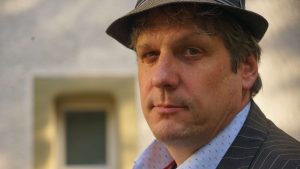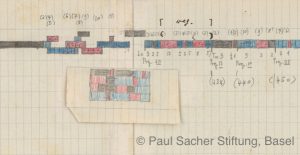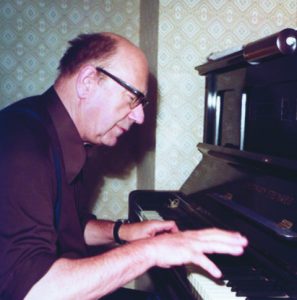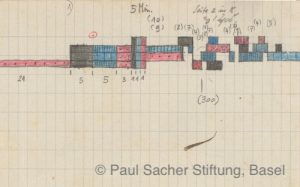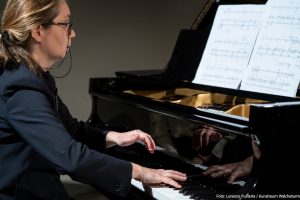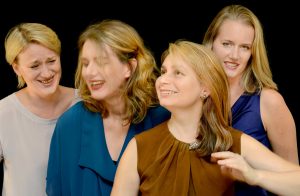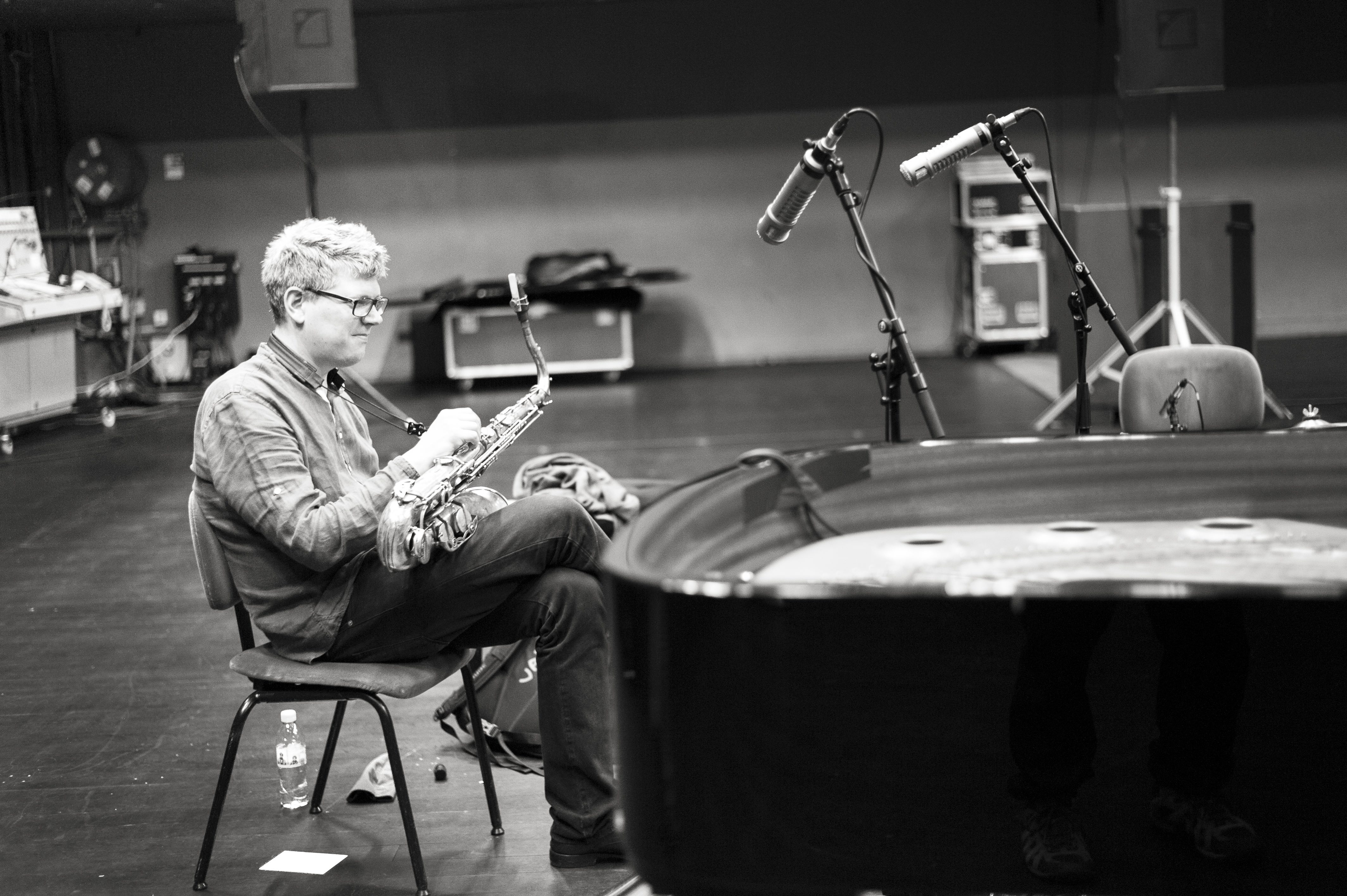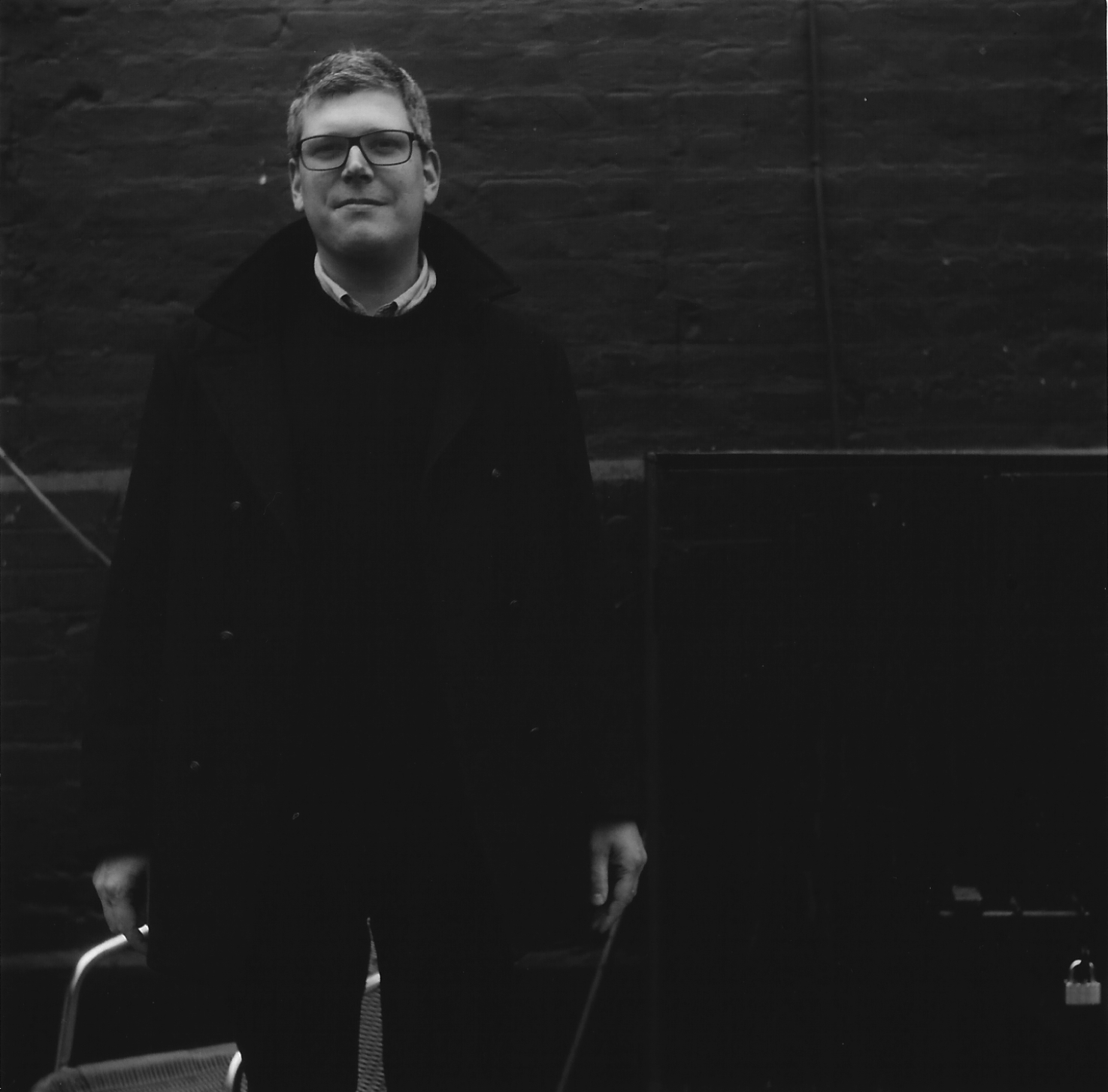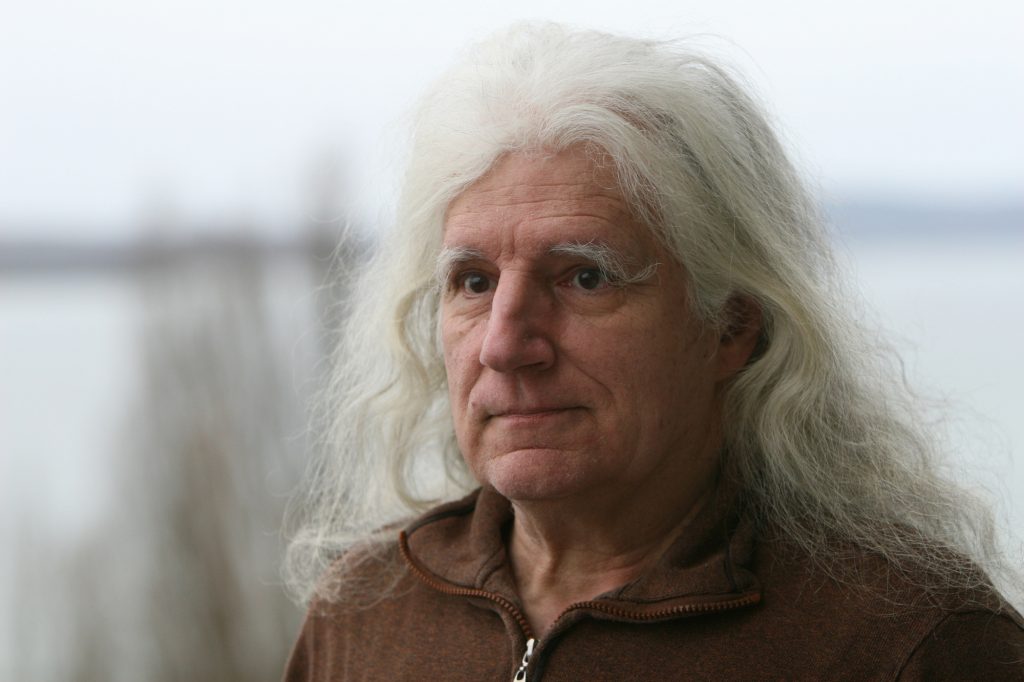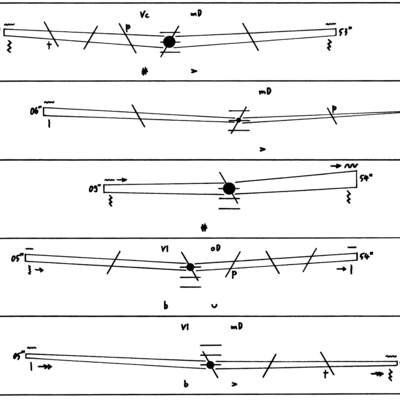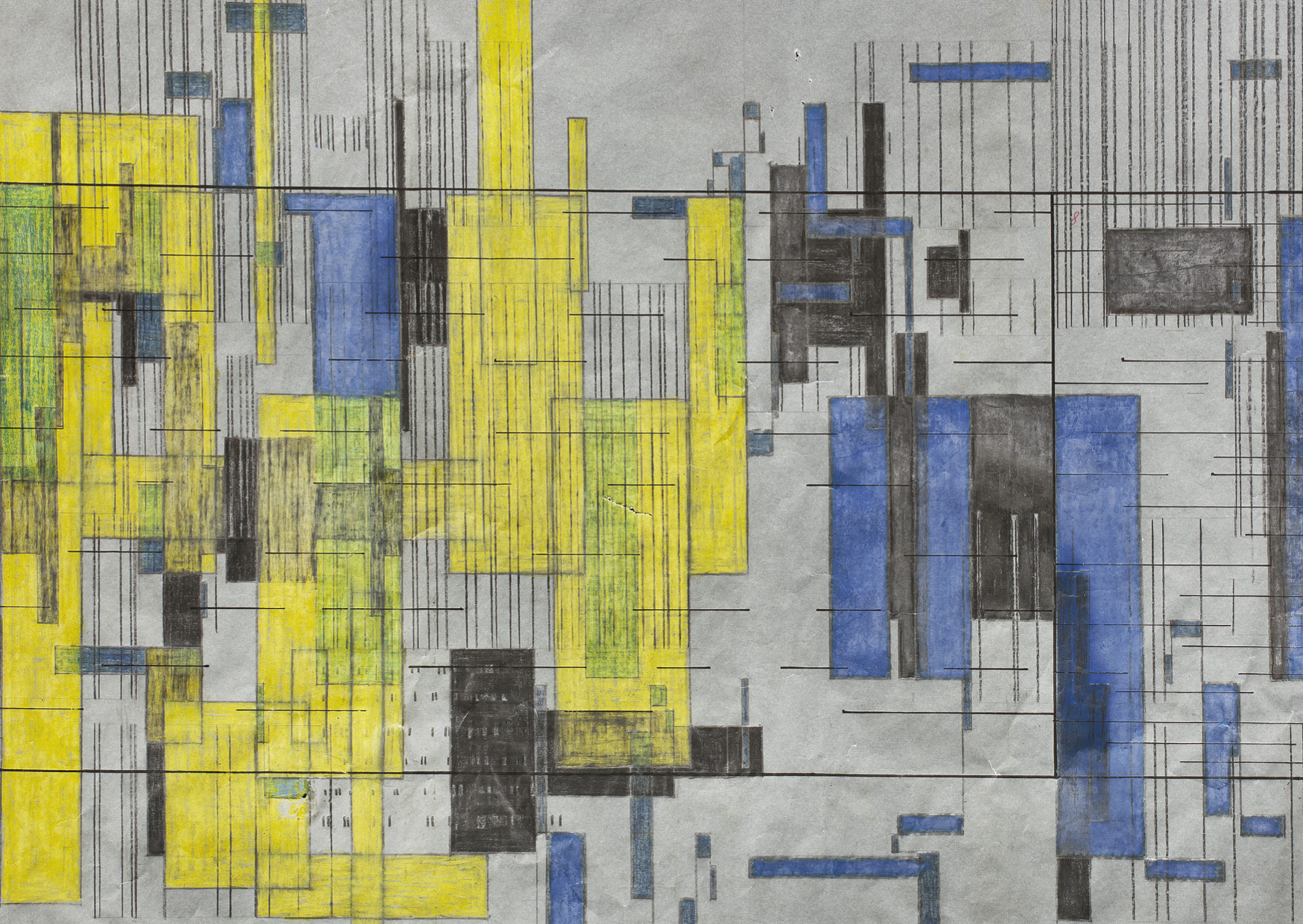Michael Wertmüller, a portrait by Gabrielle Weber
Michael Wertmüller’s music sounds anarchic, virtuosic and highly energetic. From the shortest compositions to immersive, expansive music theatre, his works combine approaches from jazz and contemporary music, always dramatic, intense and full on. A portrait by Gabrielle Weber
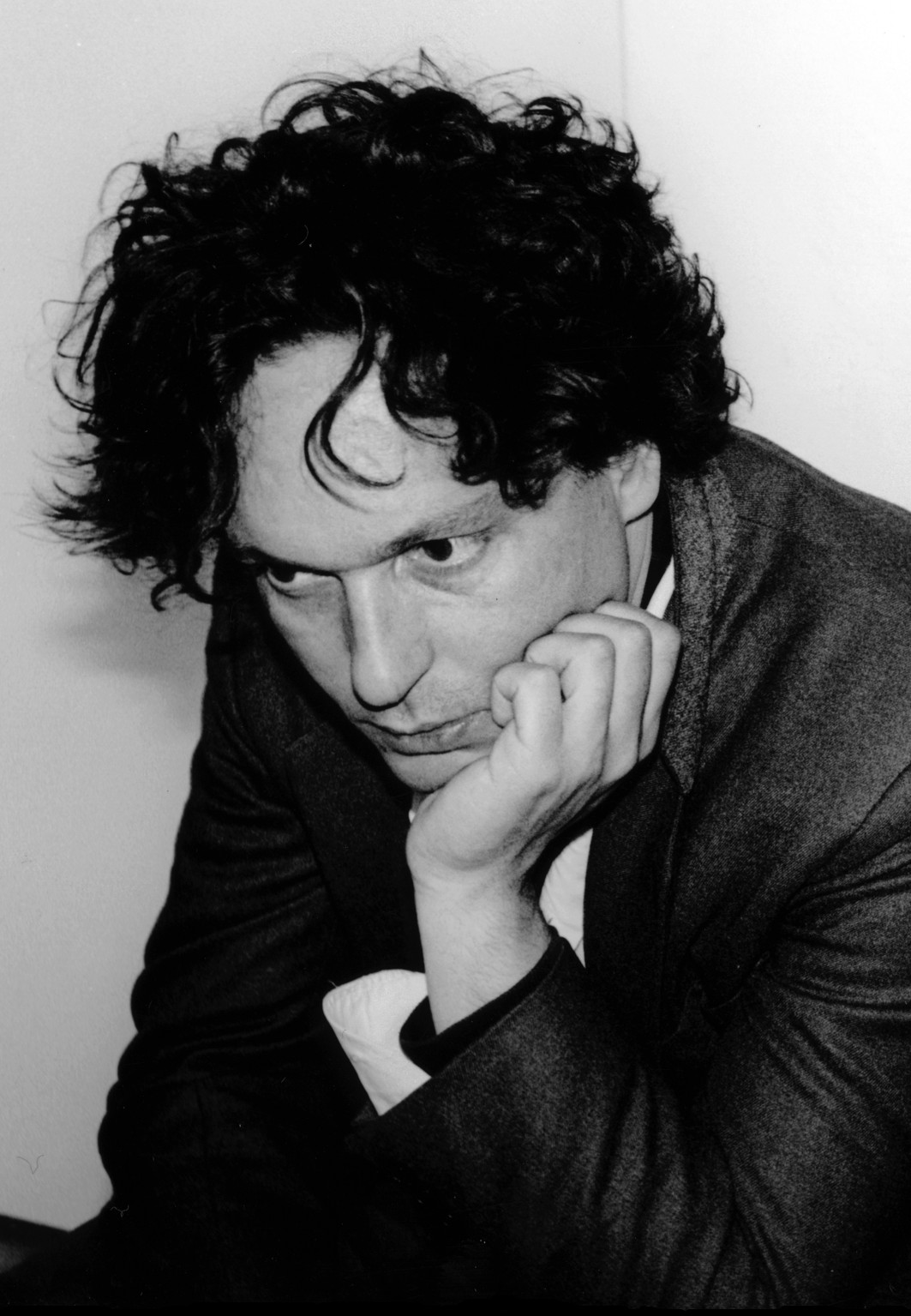
Gabrielle Weber
“I just love craziness and playing crazy. I like virtuosity,” says Michael Wertmüller in an interview. The extreme is his norm. His radical, genre-breaking works are highly complex and usually interweave meticulously notated contemporary music with jazz, pop, rock and improvisation.
The drummer and the composer
As drummer, Wertmüller initially played in various fusion bands. From then on, the path to composing was natural as the music he wanted to play had to be invented first and so he gradually began to compose pieces for his bands himself: “It was a mix of jazz, rock, death metal and hardcore. From today’s perspective, it was a wild mess that wanted to and had to be tamed,” says Wertmüller.
His drumming performances as well as his first compositions are concentrated, highly concentrated power. In “check_in_swiss”, Wertmüller improvises a three-minute solo in consistently high intensity during a sound check for the band Full Blast.
Michael Wertmüller, percussion solo check-in-swiss, 2001.
As a percussionist, for the Bern Symphony Orchestra first and later for Amsterdam’s Concertgebouw Orchestra, Wertmüller was fascinated by the intensity, power and drama of the classical orchestral apparatus. “It was a huge pleasure to follow how the instruments communicate with each other in the midst of this orchestral apparatus, how this web of compositions is connected. I was really interested in that.” From 1995 onwards, Wertmüller focused entirely on classical composition by studying composition with Dieter Schnebel at Berlin’s Hochschule der Künste.
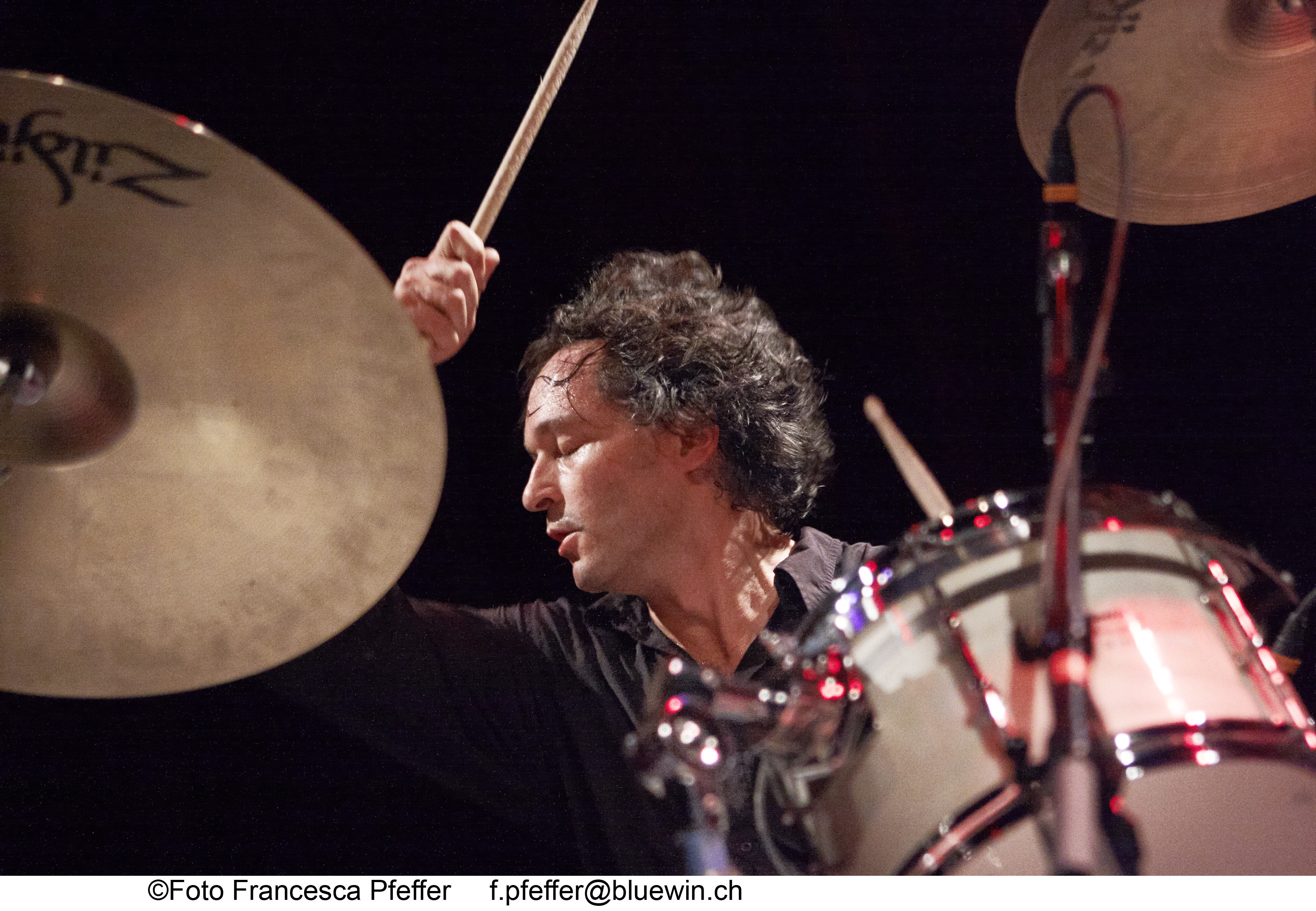 Michael Wertmüller the percussionist © Francesca Pfeffer
Michael Wertmüller the percussionist © Francesca Pfeffer
Bringing opposites together
Meanwhile, he continued to tour the world with bands, for example with eminent jazz saxophonist Peter Brötzmann and bassist Marino Pliakas in the trio Full Blast, until Brötzmann’s death in June 2023. “Being on the road, playing in a jazz context, has always been an incredibly important influence and at the same time, composition or, in a broader sense, classical music is also a strong influence in my playing.”
Peter Brötzmann is regarded as a radical jazz innovator thanks to his energetic playing and, along with Dieter Schnebel, was a formative personality for Wertmüller’s composing. “I had known Brötzmann since I was 22 years old, even before I studied with Schnebel. He kind of pulled me along and took me with him.”
Michael Wertmüller, antagonisme contrôlé, World-premiere concert 6.4.2014, WDR-Funkhaus Köln. Peter Brötzmann (Saxophon), Marino Pliakas (E-Bass), Dirk Rothbrust (Schlagzeug), Ensemble Musikfabrik, conductor Christian Eggen.
“The free form of jazz and the very strict serial music: that’s a huge balancing act and they influence each other strongly.” Wertmüller’s “classical” composing brings both musical genres together. Wertmüller composed three works for Peter Brötzmann as a soloist, in which he incorporated Brötzmann’s improvisations into composed scores for new music ensembles. “Brötzmann never did that before. For me, it was an honour and showed that he respected and valued the connection between the two”.
In antagonisme contrôlé for three soloists, Brötzmann, Pliakas and percussion solo, and the Ensemble Musikfabrik, Wertmüller uses improvised solos by Brötzmann and Pliakas as a counterpoint to the strictly notated movement of the 19-piece Ensemble Musikfabrik from Cologne. His aim is to bring the free spirit of jazz and serial classical composition, two opposite worlds together in one form, so that both retain their character.
Connecting different soundscapes
Wertmüller’s band Steamboat Switzerland brings together contrasting soundscapes: since its foundation in 1995, the trio, consisting of Marino Pliakas, electric bass, Lucas Niggli, percussion, and Dominik Blum, Hammond organ, has combined jazz, rock, metal and improvisation with contemporary music.
Since their first encounters in the 1990s, Michael Wertmüller has become something of a resident composer for the band. “Steamboat is the most radical band that can play sheet music that I know of. So I can compose like a madman and it’s played like that: with an incredible radicalism, which is of course fantastic for me,” says Wertmüller about what he considers his favourite band.
Wertmüller later incorporated the trio into many of his major music projects, often in conjunction with classical ensembles.
“Steamboat is actually an incredible engine, a generator. The precision with which they play the material could definitely inspire a classical orchestra,” says Wertmüller.
Michael Wertmüller, discorde for Hammond-Orgel, E-Bass, Drum Set und Ensemble, Uraufführung Donaueschinger Musiktage 15.10.2016, Steamboat Switzerland, Klangforum Wien, conductor Titus Engel.
In discorde, premiered at the Donaueschinger Musiktage 2016, the trio plays with Klangforum Wien, conducted by Titus Engel. Wertmüller stages an actual battle between the different musical genres. However, he is not interested in the contrast, but rather in what they have in common: “They were the engine in the whole structure. It was a train travelling in the same direction.”
Modern dramas – utopias
“I don’t claim to unite styles. I rather have the feeling that they have become completely intertwined over the course of my life. Actually, it’s also a dramatic thing when it blends like that. To me, it’s a modern drama.”.
Wertmüller has been implementing the dramatic blending of opposites in five international music theatre productions since 2013, so far most consistently in the experimental opera D.I.E for the Ruhrtriennale 2021, where the stage and the space are also integrated. In a disused industrial hall, Landschaftspark Duisburg Nord’s power station, the audience is placed in the centre, surrounded by an all-round catwalk that serves as a stage for Steamboat, a string quartet, a punk band, a rapper, a conferencière and classical singers. Animated holographic music visualisations and enlarged sketches by visual artist Albert Oehlen envelop the whole. Michael Wertmüller produced an exclusive, limited vinyl release for D.I.E. together with Albert Oehlen, who designed the cover: the album Im Schwung with singer Christina Daletska, Ruhrtriennale 2021.
Michael Wertmüller / Albert Oehlen, Im Schwung, Christina Daletska, Ruhrtriennale 2021.
“Sometimes I have ideas about music that is not yet known or has not yet existed in this form. To me, art is also largely connected to utopias and I try to get into this area where utopia can perhaps also become reality.”
Gabrielle Weber
Sonderband Musik-Konzepte Michael Wertmüller, edition text+kritik, Hg. Ulrich Tadday, Dezember 2024.
Am 25.1.25 erlebt Wertmüllers nächste Oper die Uraufführung:
Israel in München, Uraufführung 25.1.25 Staatsoper Hannover.
Peter Brötzmann, Dieter Schnebel, Albert Oehlen, Christina Daletska, Marino Pliakas
broadcasts SRF 2 Kultur
Musik unserer Zeit, 18.12.2024: Michael Wertmüller und das Trio Steamboat Switzerland, Redaktion/Moderation Gabrielle Weber.
Neue Musik im Konzert, 18.12.2024: Michael Wertmüller im Konzert, Redaktion/Moderation Gabrielle Weber.
Neoblog, 3.10.2020: Michael Wertmüller: “..der grösste Beethoven-Fan aller Zeiten..”, Autorin Gabrielle Weber.
neoprofiles
Michael Wertmüller, Steamboat Switzerland, Lucas Niggli, Dominik Blum, Titus Engel


